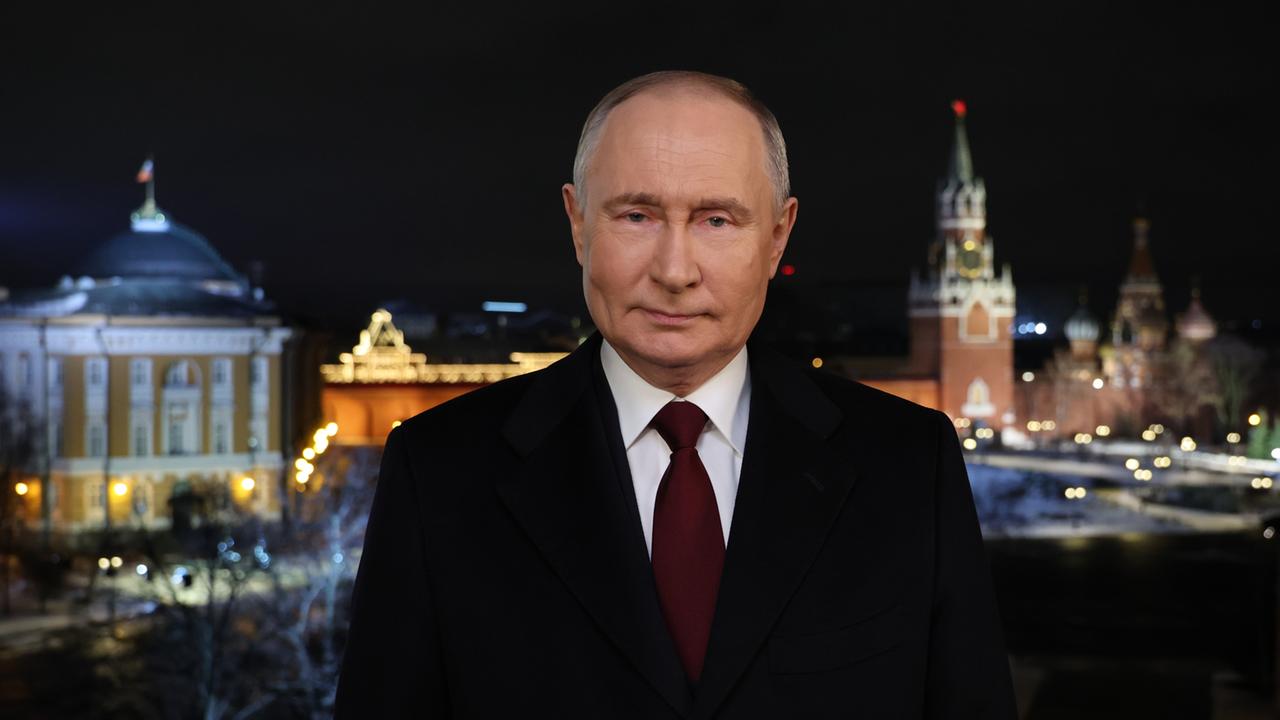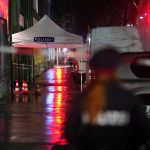In the new budget, Russia sets a record: every third ruble will go to the security and military apparatus. But surveys indicate war weariness. This is also due to the economic consequences.
“Dear fellow citizens,” Russian President Vladimir Putin began his short New Year's speech. “The year 2023 is history, now we have to move forward and shape the future.” On the one hand, it was remarkable that Putin did not directly mention the war against Ukraine – but only thanked the soldiers in general. And on the other hand, Putin did not appear in front of the military again, but deliberately in front of a peaceful, civilian Moscow backdrop.
If it weren't for the omnipresent advertising on Moscow's large electronic billboards to sign up as a contract soldier for the “special military operation,” you could almost ignore the war in the capital. But it has its price – even beyond the officially unpublished numbers of dead and wounded.
“The state budget is undoubtedly very complicated,” said Deputy Head of Parliament Alexander Zhukov. “Because of the 'special military operation', very serious funds will be spent on the defense capability of our country.” A record will be set in the new state budget: every third ruble will go to the security and military apparatus.
Imports via detours
The packages of Western sanctions have changed the economy and, particularly for city dwellers, consumer behavior. Cars, films, electronics and cosmetics from the West are more scarce, have to be imported via detours – as so-called parallel imports – without the consent of the manufacturers and are more expensive. Russia is trying to find replacements from its own country or, above all, from China.
Oil and gas exports to the West, which are so important for government revenue, have also declined. Here Russia is trying to open up new markets. President Putin almost defiantly repeats – including at his first media appearance this year in a military hospital near Moscow – that the Russian economy cannot be destroyed by sanctions.
“When Western companies left our market, collapse was expected,” Putin said. It was expected that companies would stop working and thousands would become unemployed. That people would take to the streets to demand bread and work. “Instead, we have the lowest unemployment in the history of Russia at 2.9 percent,” said the Russian president. Inflation is high – but under control, said Putin.
Arms production according to the ministry
Russia's defense production – tanks, missiles, ammunition – has increased dramatically, according to the Defense Ministry. The message behind it: We will not run out of reserves. The massive, brutal drone and missile attacks on Ukraine in recent days are apparently intended to underline this. They also showed that, despite the cautious New Year's speech, there are no signs of the Russian President changing course in the war against Ukraine.
It is uncertain how exactly Russia would have developed without the war against Ukraine: economically and in cultural, scientific, foreign policy relations and in the development of future technologies. What is certain is that the country would be significantly better off.
Critical media are missing for an open debate
So is war weariness growing? Surveys suggest so. But Russia's new normal also includes refraining from criticizing the “special military operation” under threat of high penalties. This makes it difficult to assess the real mood in the country.
The critical media are missing for an open debate about the price and meaning of the war – they have been banned and driven out of the country. In a few weeks, at the end of February, the third year of the war will begin. With no apparent roadmap for what a transition to peace with Ukraine might look like.
Frank Aischmann, ARD Moscow, tagesschau, January 3rd, 2024 11:07 a.m




